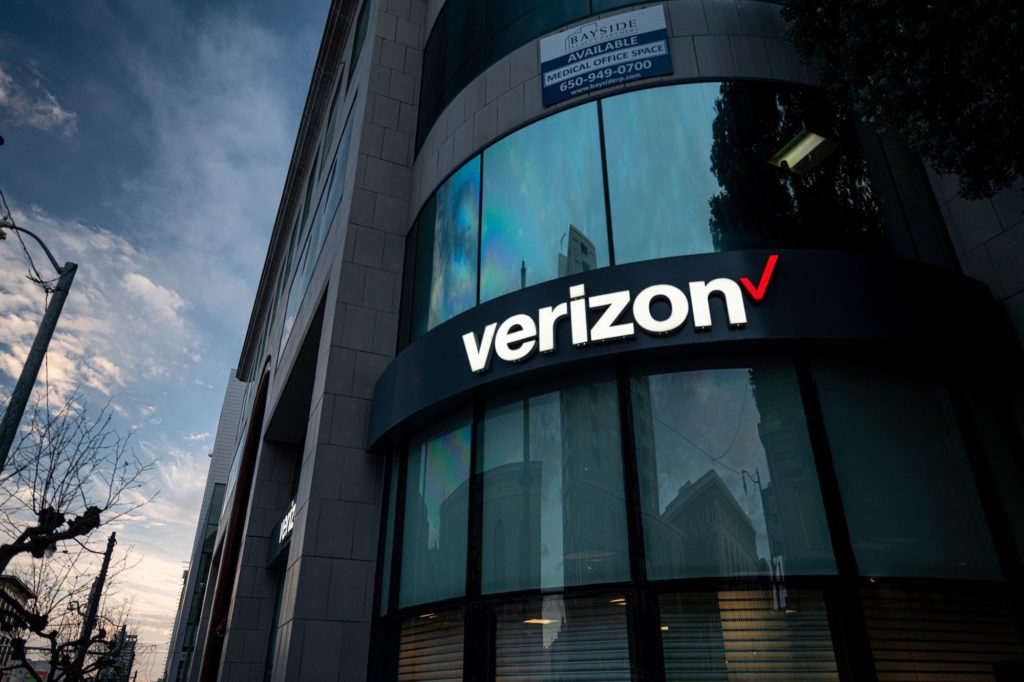(Bloomberg) — Verizon Communications Inc. shares plunged to their biggest drop in 14 years after the mobile-phone company cut its forecast for the second straight quarter, adding to concerns that consumers are pulling back on spending.
The largest US wireless carrier is having difficulty keeping up with rivals on subscriber growth amid heavy phone discounts and decades-high inflation. Verizon said Friday that it added only 12,000 monthly wireless phone subscribers in the second quarter, well below analysts’ predictions for 167,200 new phone customers.
The shares fell 6.7% in New York, their biggest one-day drop since 2008, when the US was in the throes of the Great Recession. The stock has fallen 14% this year.
The news is another setback for wireless carriers after AT&T Inc. alarmed industry watchers Thursday with a warning that some customers are starting to delay paying their bills. Both AT&T and Verizon have been raising prices by $6 a line on older mobile plans.
“It’s hard to find any silver lining in these results,” said LightShed Partners analyst Walt Piecyk. “Verizon management appears to have no answers for how to grow. It’s unclear what is next.”
Verizon is under pressure to retain its market lead. The company returned to free phone promotions in an effort to counter discounts and giveaways by AT&T and T-Mobile US Inc. The New York-based mobile giant is also racing to catch up with T-Mobile on 5G service and expects to find new revenue by pursuing network contracts with businesses and facilities including shipping ports.
Earnings per share, excluding some items, are now expected to be between $5.10 to $5.25 for the year, down from a range of $5.40 to $5.55, Verizon said Friday in a statement. The company also reduced its forecast for service and other revenue, calling for as much as a 1% decline. The outlook had previously been for flat revenue growth compared with a year ago.
Verizon lost a net 215,000 consumer wireless customers in the second quarter and gained 227,000 business customers. Higher device activations and increased inventory levels tied to supply-chain initiatives hurt cash flow in the first half of 2022, the company said.
Verizon hasn’t seen late bill payments from customers, Chief Financial Officer Matt Ellis told analysts on a conference call. He said challenges facing the company this year are a “short term” setback.
In so-called fixed wireless, a relatively new segment of broadband service where signals are beamed directly to a home WiFi router, Verizon added 256,000 wireless internet subscribers. T-Mobile had taken a lead in the race to serve wireless broadband to homes with more than 1 million internet subscribers as of April. The wireless carriers’ introduction of a $50-a-month, high-speed alternative to landline broadband has been cutting into the cable companies’ most prized business.
“The competitive environment will only get more difficult over the course of the next few quarters,” New Street Research analyst Jonathan Chaplin wrote in a note to clients. “They managed to keep their market share stable when AT&T or Sprint were shedding subs, but with Sprint gone and AT&T refocused on its communications businesses, maintaining that position may be impossible.”
(Updates with closing stock price in third paragraph.)
More stories like this are available on bloomberg.com
©2022 Bloomberg L.P.











